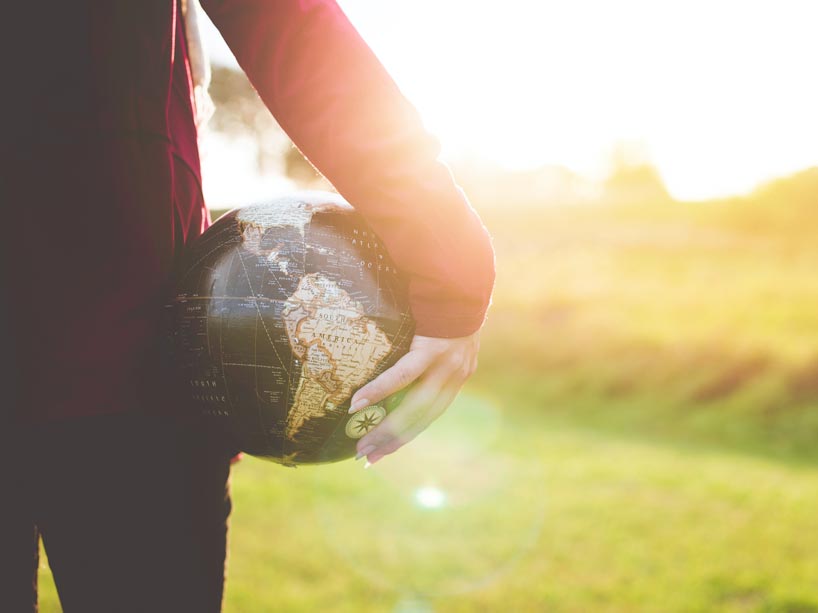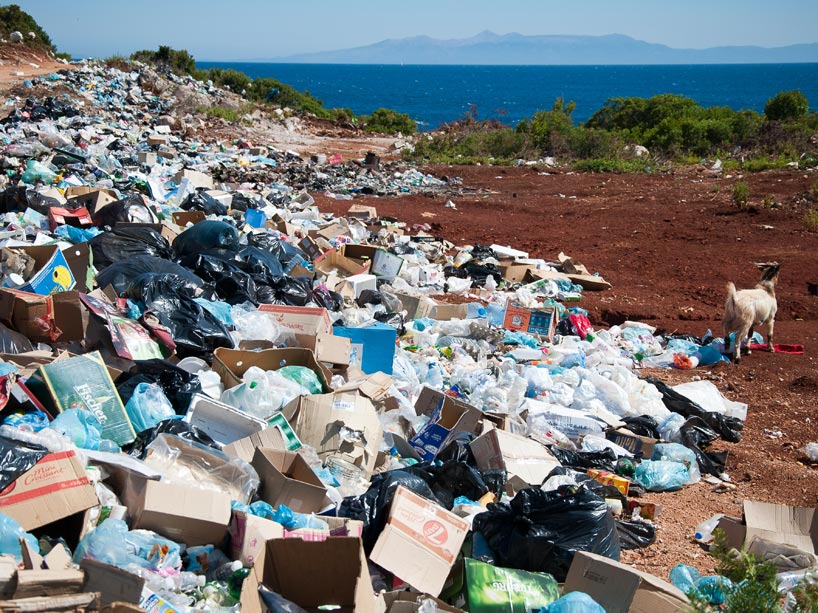Earth Day 2020 gives rare chance to reflect, consider the future

As we look to emerge from the Covid-19 crisis, there’s an opportunity for the environment to rebound and show its resiliency, says Ryerson professor Christopher Gore. Photo credit: Ben White on Unsplash.
With the global economy essentially shut down in the fight against Covid-19, Earth Day 2020 gives a profoundly unique opportunity to reflect on the world we live in and the kind of future we’d like to see, says Ryerson professor Christopher Gore, chair of the Department of Politics and Public Administration in the Faculty of Arts.
In the Q&A below, Gore, whose work focuses on environmental politics and policy, shares insights on the environmental impacts of the pandemic, and what we should consider in terms of protecting the planet in the future.
What signs of positive environmental impact have you observed during the global economic shutdown?
As you’ve likely heard, we’ve seen the return of whales in the Mediterranean Sea – where they haven’t been in years. We’ve heard about dolphins in the canals in Venice. There’s been an improvement in air quality, certainly in cities in China, but also globally – we’ve seen a decrease in nitrous oxide, one of the major pollutants. We also have more wildlife in urban areas, such as an abundance of elk in Banff, Alberta.
The bigger message for me is how it’s all taken place in such a short period of time. It’s remarkable how quickly we’ve witnessed environmental changes and particularly, an increase in biodiversity that we would never have seen otherwise.
It speaks to the resilience of the environment and reminds us that things we may not even have known existed are still actually active and present in the environment we live and share.
What other interesting changes or impacts have occurred during this time?
What’s also remarkable is that we’re also seeing a significant disruption in the food chain. So much of the demand for food is fueled by restaurants, hotels and the tourism industry. When these industries are sidelined, it has a tremendous impact.
The other thing to note is that it’s not just demand that’s changed, there has also been a huge shift in the volume of demand from suppliers. Some farmers have been used to selling larger volumes to single suppliers, but now they’re having to readapt to a different mode of selling. In many cases, they’re ploughing under crops, because the demand is no longer there.
In another example, I think of my work in East Africa. With the absence of tourism, and the absence of monitoring, there is some evidence and fear that poaching will increase for economic and food supply reasons.
With the world essentially on pause, how rare or unique is this situation? What kind of opportunity does this present in terms of environmental protection?
This is profoundly rare. People are talking about it in comparison to the financial crisis of 2008, in relation to the Second World War, and past pandemics, but to my knowledge there is no precedent for a massive global disruption of this scale.
I think this is an incredibly unique opportunity to pause and reflect on what environmental future we want – with respect to how we work, what resources we consume, and what aspects of the environment we value, whether that’s biodiversity or cleaner air, and ultimately how we will continue to consume products in the future, and the impact of that consumption on environmental well-being.
In Canada specifically, I think it’s highlighting our dependence on natural resources, especially oil. Even if we have a return to people’s driving habits and consumption of oil and gas, this should be a sharp reminder of how sensitive or volatile our dependence is on single resources.

Ryerson professor Christopher Gore says one of his biggest concerns is a “fast reversion” to previous consumption habits which have a negative impact on the environment. Photo credit: Antoine Giret on Splash.
Do you have any concerns about when the world transitions back to ‘normal’?
My biggest concern is a fast reversion back to past practices – a celebration of mass consumption and unsustainable practices. It’s not going to be surprising that people are going to rush to get outside and socialize, but also rush to consume. So much of our joy is consuming products that have a negative environmental impact.
This is where government has to demonstrate its capacity to lead, but also take the lead on what opportunities exist for trying to salvage some of the positive environmental repercussions that we have seen during this time. This is a deeply political dilemma, however. We see protests in the streets of Michigan, for example, demanding to have restrictions lifted and for governments to allow people to act independently.
As we recognize Earth Day 2020, do you have any advice to share?
We’re at a point now where we have this extraordinary opportunity – everyone has been able to witness the dramatic changes that materialize when you alter the way you live. It reminds us that there are alternative ways to structure the economy. There are opportunities for the environment to rebound, to resurrect and show its resiliency.
It may sound like a cliché question, but we do have the opportunity to ask ourselves– what kind of earth do we want to live on? What are the systems and structures that we’ve relied on for decades or more, and is this a time and an opportunity to redesign or restructure those relationships as we move forward? As we celebrate Earth Day, these are important questions to consider.
Related: